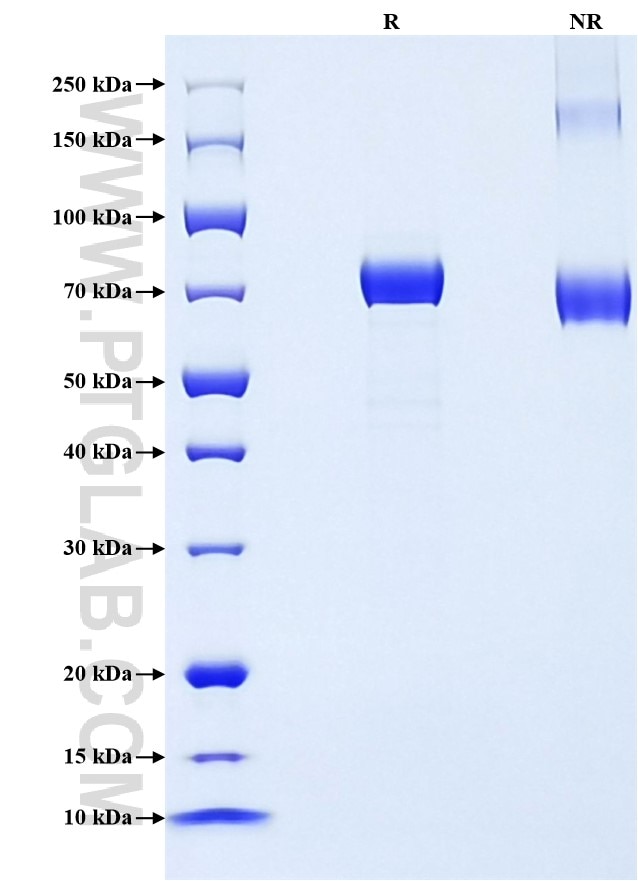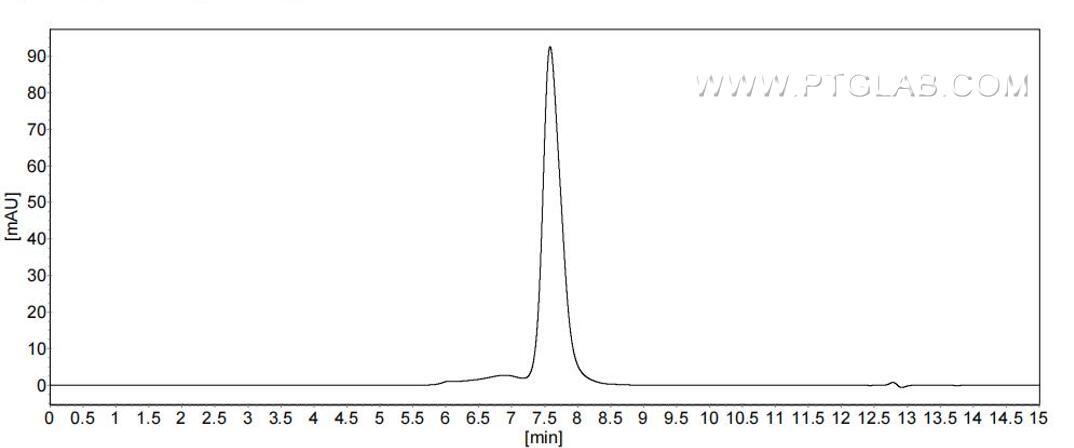Recombinant Mouse IL-13RA2 protein (rFc Tag) (HPLC verified)
Species
Mouse
Purity
>90 %, SDS-PAGE
>90 %, SEC-HPLC
Tag
rFc Tag
Activity
not tested
Cat no : Eg3118
Validation Data Gallery
Product Information
| Purity | >90 %, SDS-PAGE >90 %, SEC-HPLC |
| Endotoxin | <0.1 EU/μg protein, LAL method |
| Activity |
Not tested |
| Expression | HEK293-derived Mouse IL-13RA2 protein Leu22-Lys334 (Accession# O88786-1) with a rabbit IgG Fc tag at the C-terminus. |
| GeneID | 16165 |
| Accession | O88786-1 |
| PredictedSize | 62.5 kDa |
| SDS-PAGE | 68-80 kDa, reducing (R) conditions |
| Formulation | Lyophilized from 0.22 μm filtered solution in PBS, pH 7.4. Normally 5% trehalose and 5% mannitol are added as protectants before lyophilization. |
| Reconstitution | Briefly centrifuge the tube before opening. Reconstitute at 0.1-0.5 mg/mL in sterile water. |
| Storage Conditions |
It is recommended that the protein be aliquoted for optimal storage. Avoid repeated freeze-thaw cycles.
|
| Shipping | The product is shipped at ambient temperature. Upon receipt, store it immediately at the recommended temperature. |
Background
The protein encoded by the Il13ra2 gene is closely related to Il13ra1, a subunit of the interleukin 13 receptor complex. This protein binds IL13 with high affinity but lacks a cytoplasmic domain and does not function as a signal mediator. It is reported to play a role in the internalization of IL13. It acts as a decoy receptor for IL-13, diminishing its STAT6-mediated effector functions. It has been implicated in the pathogenesis of inflammatory bowel disease (IBD). Mouse models have been used to study the function of Il13ra2 in IBD, and its human ortholog IL13RA2 is a promising candidate for the development of therapeutic strategies for IBD.
References:
1. Seblani M, Zannikou M, et al. (2024) Res Sq. rs.3.rs-5398280. 2. Zhang T, Zhu M, et al. (2024) J Adv Res. S2090-1232(24)00082-1. 3. Marquardt RM, Lee K, et al. (2020) Biol Reprod. 103(4):760-768. 4. Saka M, Amano T, et al. (2010) J Neurosurg. 113(2):270-9.

